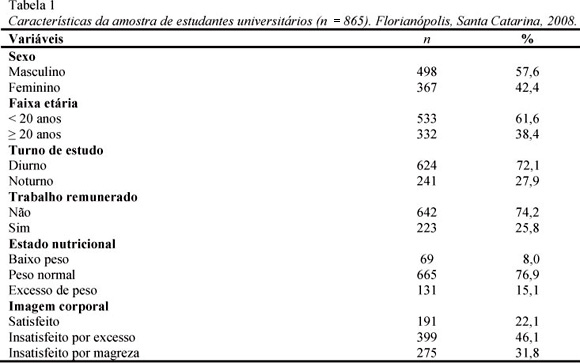The objective of this study was to analyze the body image dissatisfaction and its association with nutritional status and socio-demographics variables (sex, age group, period of study and paid employment) among college students. The study involved 865 college students. The prevalence of body image dissatisfaction was 77.9%and sex and nutritional status (assessed by body mass index based on self-reported measures) were associated with this outcome. Men, more often, desired to increase body weight and women, to reduce it. Overweight college students were more likely to desire to reduce body weight (OR = 6.83; 95% CI = 3.72-12.54), and those who were underweight were more likely to desire to increase it (OR = 3.06; 95% CI = 1.59-5.88). Thus, it is highlighted the importance of policy to promote physical activity practices and adoption of healthy eating habits, as well as to prevent risk behaviors adopted to change the body image.
body image; body dissatisfaction; nutritional status; college


